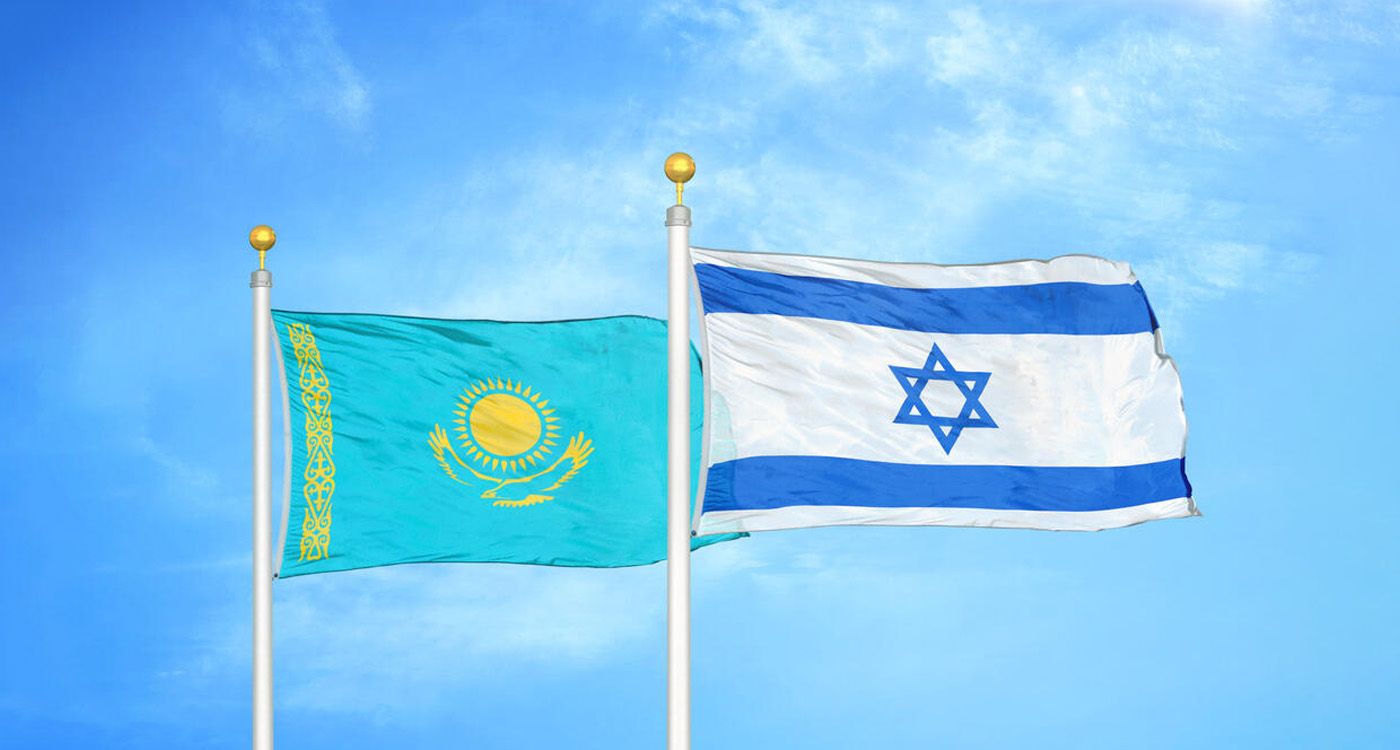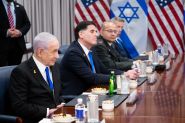- Home
- Middle East
- Kazakhstan Joins the Abraham Accords: A Symbolic Move with Strategic Implications

©Shutterstock
U.S. President Donald Trump announced Thursday that Kazakhstan will join the Abraham Accords, a diplomatic framework launched in 2020 to normalize relations between Israel and several Arab and Muslim states.
The announcement came after a phone call between Trump, Israeli Prime Minister Benjamin Netanyahu, and Kazakh President Kassym-Jomart Tokayev, who was in Washington for the C5+1 summit bringing together Central Asian leaders.
“We will soon announce an official signing ceremony, and many other countries want to join this club of strength,” Trump said on Truth Social. The Kazakh government confirmed that negotiations were in their final stage and described the decision as a “natural and logical continuation” of its foreign policy based on dialogue and regional stability.
The move is far from insignificant: while it does not upend existing diplomatic balances, it reflects a shared desire to breathe new life into a geopolitical project that had been largely dormant due to the Gaza war.
Washington hence hopes to revive the momentum of the Abraham Accords and strengthen its influence in a strategic region where Moscow and Beijing are aggressively expanding their reach.
A Symbolic but Politically Useful Accession
Kazakhstan and Israel have maintained diplomatic relations since 1992, cooperating in energy, technology, healthcare, and defense. Astana supplies between 22 and 25% of Israel’s oil consumption, while Israel exports agricultural and cybersecurity technologies to Kazakhstan.
This steady, discreet cooperation fits into Kazakhstan’s long-standing “multi-vector” diplomacy, a constant balancing act between Russia, China, and the West.
According to the Atlantic Council, Kazakhstan’s accession “is not a major breakthrough” but carries important symbolic value. It signals continuity rather than change, while aligning Astana with a prestigious diplomatic framework that enhances its international visibility.
It also sends a message to Washington: Kazakhstan positions itself as a moderate Muslim partner ready to engage in U.S.-backed regional peace and development initiatives.
The decision therefore reflects a strategy of recognition and positioning. President Tokayev is aware of the risks of isolation in a region dominated by Russia and China and is thus seeking to broaden his circle of allies. Joining the Abraham Accords gives him a low-cost political platform and an opportunity to attract Western investment, especially in mining, energy, and technology.
A New Stage in the U.S. Strategy in Eurasia
For the United States, the announcement acts as a diplomatic signal. According to the Times of Israel, a senior U.S. official said Kazakhstan’s accession shows that “the momentum of the accords is still alive” and foreshadows additional signatories.
Secretary of State Marco Rubio emphasized that the accords go “beyond simple bilateral relations”: they aim to create a framework of economic and political cooperation between Muslim-majority countries and Israel, proving that dialogue and prosperity are possible.
This interpretation aligns with the Atlantic Council’s view that a “pan-Abrahamic bloc” is emerging. By extending the accords into Central Asia, Washington hopes to turn this diplomatic network into a regional stabilization tool and a counterweight to Russian and Chinese influence.
Kazakhstan’s presence, as the world’s leading uranium producer and holder of vast hydrocarbon reserves, adds a new strategic dimension to this framework.
But the revival remains fragile. As the Atlantic Council notes, without progress on the Palestinian issue, Saudi Arabia, the most influential Muslim country, will not join the accords. And without Riyadh, the project’s scope remains limited. Kazakhstan’s entry thus serves a primarily political purpose: demonstrating that the Abraham Accords brand is still alive, just ahead of Crown Prince Mohammed bin Salman’s visit to the White House.
A Longstanding and Complementary Bilateral Relationship
Kazakhstan’s accession builds on three decades of cooperation with Israel. Since the 1990s, Kazakhstan has been a crucial energy supplier to the Jewish state. According to the Begin–Sadat Center for Strategic Studies, Kazakh oil accounts for up to a quarter of Israel’s needs, supporting its energy security and diversification outside the Middle East.
Trade regularly exceeds USD 1 billion per year, and more than 50 Israeli companies operate in the country, notably in telecommunications, precision agriculture, and healthcare.
The two states have also developed security cooperation since the 2000s: Israel provides technological expertise, while Kazakhstan offers a rare diplomatic foothold within the Muslim world.
This partnership also rests on cultural and political affinities. Kazakhstan presents itself as a secular, tolerant state where 130 ethnic groups and 45 religions coexist. Since 2003, it has hosted the Congress of Leaders of World and Traditional Religions, an interfaith forum in which Israel participates actively.
This policy of religious tolerance, praised by both Washington and Jerusalem, reinforces Astana’s legitimacy in joining a cooperation framework grounded in coexistence and dialogue.
An Opportunistic Yet Revealing Choice
Kazakhstan’s entry into the Abraham Accords is not a diplomatic turning point but rather a geopolitical move. For Washington, it revives a flagship project of Trump’s first presidency and sends a message to Beijing and Moscow: Central Asia is no longer exclusive territory. For Israel, it confirms its strategy of normalizing relations with moderate Muslim states beyond the Arab world.
For Kazakhstan, the move reflects a calculated balance: deepening cooperation with Western powers without jeopardizing its ties with Russia and China. In an era of heightened global rivalry, this nation of 20 million, the size of Western Europe, is betting on middle-ground diplomacy. By joining the Abraham Accords, it is not changing sides but gaining new visibility on the global stage and strengthening trust with the United States and its allies.
Read more




Comments